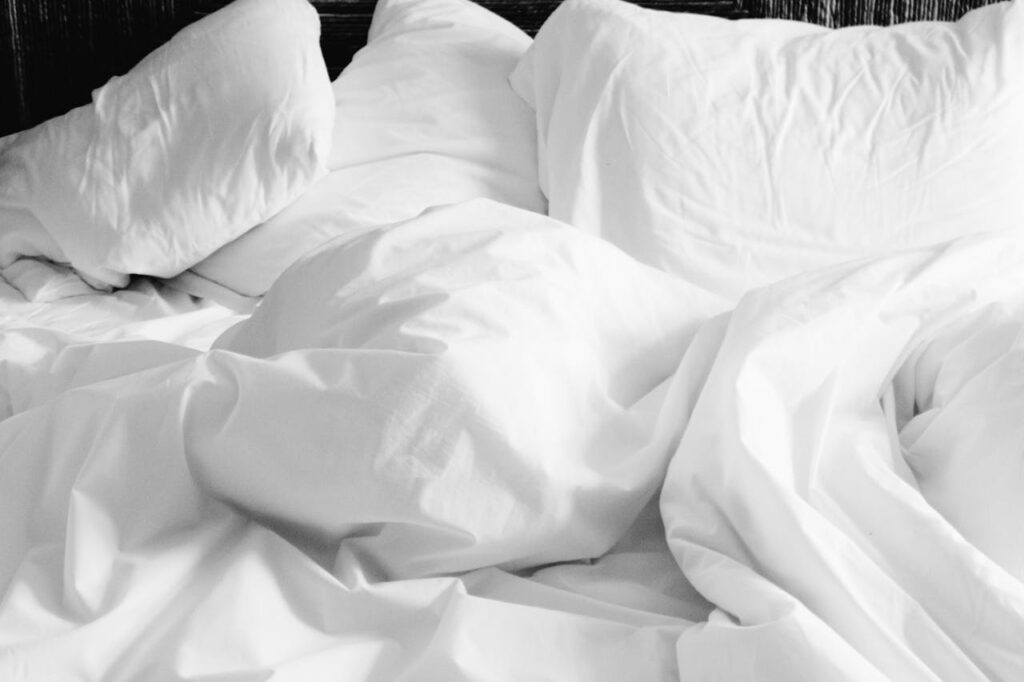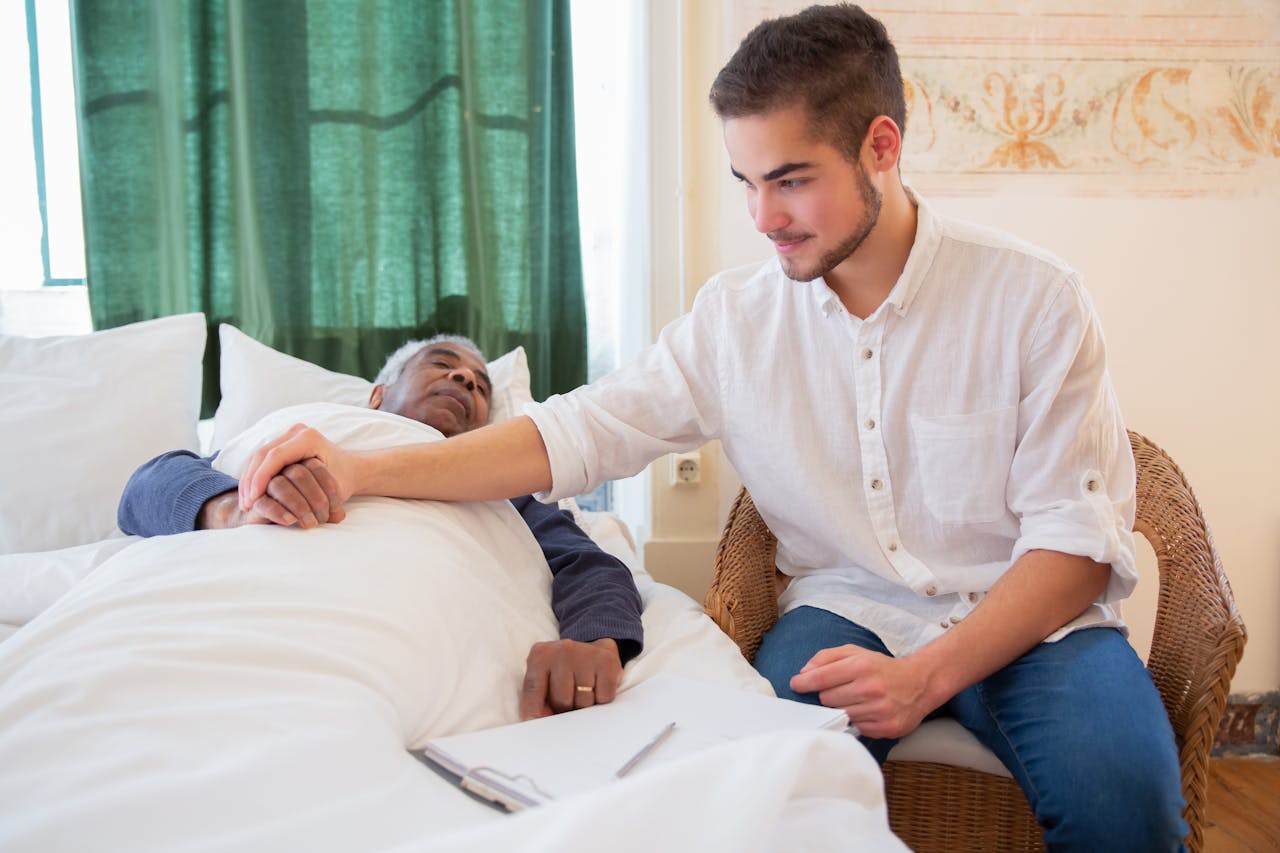Why Is Sleep Important For Seniors?
Sleep is crucial for seniors as it significantly impacts their physical and mental health. Adequate sleep improves cognitive function, memory, and emotional regulation, reducing the risk of depression and anxiety. It also supports the immune system, helping to prevent illnesses. Quality sleep promotes better cardiovascular health and aids in managing chronic conditions like arthritis and diabetes. Additionally, proper sleep enhances overall well-being, allowing seniors to maintain a more active and fulfilling lifestyle. Prioritizing good sleep hygiene can lead to improved quality of life and increased longevity for seniors.

Sleep is a fundamental aspect of our daily lives, yet it often goes overlooked in discussions about overall health and well-being. Good sleep hygiene is crucial not only for physical health but also for mental health. This article explores the importance of good sleep hygiene and its profound impact on mental health, particularly for seniors.
Understanding Sleep Hygiene
Sleep hygiene refers to the practices and habits that promote good sleep quality and daytime alertness. These practices include maintaining a regular sleep schedule, creating a comfortable sleep environment, and avoiding stimulants before bedtime. Key components of good sleep hygiene include:
- Consistent Sleep Schedule: Going to bed and waking up at the same time every day helps regulate the body’s internal clock.
- Comfortable Sleep Environment: A cool, quiet, and dark room can significantly improve sleep quality.
- Limiting Stimulants: Avoiding caffeine, nicotine, and heavy meals close to bedtime can prevent sleep disturbances.
- Relaxation Techniques: Engaging in calming activities such as reading or meditation before bed can help prepare the mind for sleep.
The Link Between Sleep and Mental Health
Numerous studies have highlighted the bidirectional relationship between sleep and mental health. Poor sleep can contribute to the development and exacerbation of mental health conditions, while mental health issues can lead to sleep disturbances.
- Depression and Anxiety: Insomnia and other sleep disorders are common in individuals with depression and anxiety. Lack of sleep can worsen symptoms of these conditions, creating a vicious cycle.
- Cognitive Function: Adequate sleep is essential for cognitive processes such as memory consolidation, problem-solving, and decision-making. Sleep deprivation can impair these functions, leading to increased stress and decreased mental resilience.
- Emotional Regulation: Sleep plays a critical role in regulating emotions. Poor sleep can lead to heightened emotional reactivity and difficulty managing stress, contributing to mood disorders.
Sleep Hygiene for Seniors
Seniors often face unique challenges that can impact their sleep, such as chronic pain, medications, and changes in sleep patterns. Implementing good sleep hygiene practices can significantly improve their sleep quality and mental health.
- Addressing Medical Issues: Managing chronic conditions and reviewing medications with a healthcare provider can help minimize their impact on sleep.
- Routine and Consistency: Encouraging a regular sleep schedule and routine can help regulate sleep patterns.
- Physical Activity: Engaging in regular physical activity during the day can promote better sleep at night.
- Mindfulness and Relaxation: Practices such as yoga, meditation, and deep breathing exercises can help seniors relax and prepare for sleep.
Conclusion
Good sleep hygiene is essential for maintaining mental health, especially for seniors. By understanding the connection between sleep and mental well-being and adopting healthy sleep practices, individuals can improve their quality of life and overall mental health. Prioritizing sleep is not just a matter of rest; it is a crucial component of mental health and well-being.
Practical Tips for Better Sleep Hygiene
- Establish a Sleep Routine: Go to bed and wake up at the same time every day, even on weekends.
- Create a Restful Environment: Keep your bedroom cool, quiet, and dark. Consider using earplugs, eye shades, or white noise machines if needed.
- Limit Screen Time: Avoid screens (phones, tablets, TVs) at least an hour before bedtime to reduce blue light exposure.
- Avoid Stimulants: Refrain from consuming caffeine, nicotine, and alcohol close to bedtime.
- Engage in Relaxation Techniques: Practice relaxation methods such as reading, taking a warm bath, or listening to calming music before bed.
By incorporating these tips into daily routines, individuals can foster better sleep hygiene and, consequently, enhance their mental health and overall well-being.
Frequently Asked Questions
What are some general tips for improving sleep in older adults?
Establish a consistent sleep schedule, create a comfortable sleep environment, and avoid stimulants like caffeine and nicotine close to bedtime.
How can physical activity help with sleep?
Regular physical activity during the day can promote better sleep at night by reducing stress and tire the body naturally.
What role does diet play in sleep quality?
Avoid heavy meals and alcohol close to bedtime. Opt for light snacks if needed and stay hydrated throughout the day.
How can relaxation techniques improve sleep?
Practices such as meditation, deep breathing exercises, and gentle yoga can help relax the mind and body, preparing for restful sleep.
What changes can be made to the sleep environment?
Ensure the bedroom is cool, quiet, and dark. Use earplugs, eye masks, or white noise machines if necessary to minimize disturbances.
Are there specific bedtime routines that can help?
Engaging in calming activities like reading, listening to soft music, or taking a warm bath before bed can signal the body that it’s time to wind down.
When should older adults seek professional help for sleep issues?
If sleep problems persist despite following good sleep hygiene practices, consulting a healthcare provider is advisable to rule out underlying medical conditions.
Can napping during the day impact nighttime sleep?
While short naps can be beneficial, long or irregular napping during the day can negatively affect nighttime sleep. It’s best to limit naps to 20-30 minutes and avoid napping late in the afternoon.
Related Articles

What is Palliative Care?
Palliative care is a specialized medical care approach focused on providing relief from the symptoms and stress of a serious illness.

Understanding Assisted Living
Assisted living provides older adults with a residential option that combines housing, personal care, and health services.

Introduction to Nursing Homes
Assisted living offers daily support and independence; nursing homes provide 24/7 medical care;

Benefits of Yoga for Seniors
Discover how yoga can enhance flexibility, balance, and mental well-being





